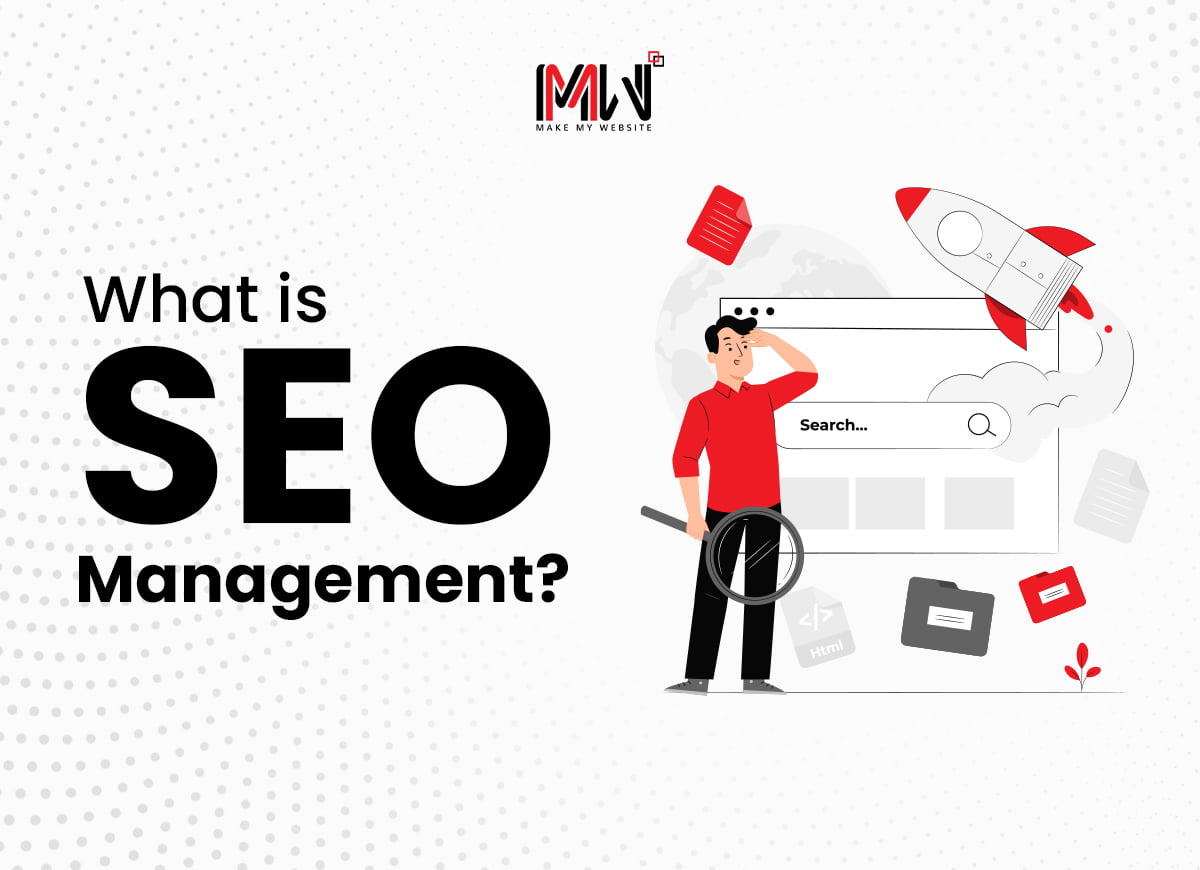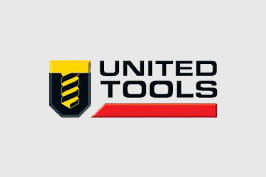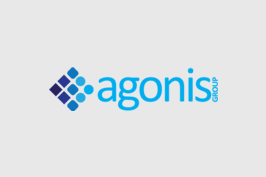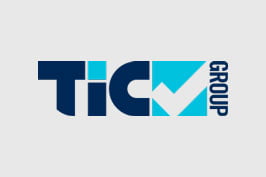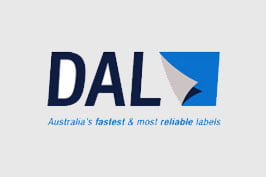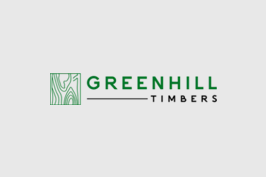What is Search Engine Management?
According to a survey website, only 63% of companies invest in SEO, despite its long-term benefits. The probable cause could be any! It may be their disinterest to engage in it (which is unlikely to be the case since SEO has become a strong need to compete online) or their inability to find a reliable search engine management resource to get done with their SEO.
For those who need more clarity on what Search Engine Management is,
Search Engine Optimisation (SEO) management refers to the ongoing process of optimising a website to improve its visibility and ranking in search engine results pages (SERPs). The goal of SEO management is to increase the quantity and quality of traffic to a website by improving its relevance and authority for targeted search queries.
In today’s digital world, having a website is not enough. A website must be optimised to rank higher in search results to attract visitors and generate leads. SEO management helps website owners achieve these goals by optimising their websites for search engines.
SEO management involves a range of activities, including keyword research, on-page optimisation, link building, content creation, and performance analysis. These activities are performed on an ongoing basis to ensure that the website remains relevant and up-to-date with the latest search engine algorithms.
What does SEO Management include?
Website Audit and Competitor’s Analysis
At this stage, SEO experts engage in complete research and analysis that enables them to find a website’s present status and position. This primarily involves scanning through the SEO tactics of top performers and formulating effective plans and policies to derive similar results.
It could involve searching for the top-performing keywords related to a particular industry or segment, analysing the backlink profiles, and digging for every information possible to get the desired results for the clients.
Keyword Research
Keyword research is the process of identifying the most relevant and valuable keywords for a website. This involves researching the terms and phrases that people use to find the products, services, or information the website provides.
Keyword research is essential because it helps website owners to understand the language and terminology used by their target audience. By understanding their audience’s search behaviour, website owners can optimise their content to match their audience’s needs and interests.
On-Page Optimisation
On-page optimisation refers to the process of optimising the content and structure of a website’s pages to make them more search engine friendly. This includes optimising page titles, descriptions, headings, and content for relevant keywords and phrases.
On-page optimisation also involves ensuring that the website’s pages are structured correctly and that the website’s code is optimised for search engines. This includes using appropriate tags, meta descriptions, and other HTML elements to help search engines understand the website’s content and structure.
Core Web Vitals
Core Web Vitals include three fundamental pillars: LCP: Largest Contentful Paint, FID: First Input Delay, CLS: Cumulative Layout Shift. They are basically the speed metrics that help businesses analyse the performance of a web page. These three pillars stand in the order of loading speed, interactivity and page stability that help provide the useful insights so that the user’s experience can be improved.
Featured Snippets
Featured snippets are an integral part of forming any SEO strategy. They are basically the top explanation Google displays in response to any search query. Aiming to land a business’s content in the featured snippets is among the most effective and practical SEO strategies a company must use to their advantage.
Improving E-A-T
E-A-T stands for Expertise-Authority-Trustworthiness, which stands as Google’s proposed intention behind any optimisation or ranking tactic. Any SEO company aspiring to boost the ranking of their client’s business must keep these parameters in check and see if they are serving as the underlying intentions or not. In case of any disparity or misalignment, the experts or professionals must revisit their planning and strategies.
Page Speed Optimisation
Page Speed Optimisation is about optimising the page speed to improve the user’s interaction with a website. If due to xyz reasons, a page is not displayed on the screen within a few seconds or lags in its functionality, the whole purpose of SEO is lost. That’s why it stands among the most crucial aspects of SEO that work towards enhancing user experience alongside assuring an improved ranking in Google’s Search results.
Indexing Optimisation
Indexing Optimisation is putting all the elements in alignment that enable Google to pick your resource and produce it in the display results. Generally, it is the task best taken by the field experts who know how to put everything in place, so there remains no hurdle for crawlers to read through your source and collect information as and when required by the intended user.
Technical SEO
Technical SEO involves all the relevant corrections and adjustment in the website that improves its overall performance and functionality. Sometimes, an error can be as minor as a heavy image file on the web page that doesn’t allow the page to open at the right time. This is where an SEO expert comes in and plays a vital role in identifying the true cause and fixing the error to bring the website’s functionality back to its optimal capacity.
Off-Page Optimisation
Link Building
Link building is the process of acquiring high-quality, relevant links from other websites to a website. These links are important because they signal to search engines that other websites consider the website to be a valuable resource.
Link building involves a range of activities, including guest blogging, broken link building, and outreach to other website owners. The goal of link building is to increase the website’s authority and credibility in the eyes of search engines.
Backlink Analysis
Backlink Analysis includes a thorough analysis of the backlink and finding if they are working to the advantage of a given website. There is a term called ‘link juice’ that determines the actual benefit derived from a particular backlink. When engaging in the process of link building, simply creating the links and then forgetting about them isn’t the way to go. Experts are required to monitor the backlink profiles from time to time to see if a certain authority is gained from the created backlinks or not. There can even be instances where a backlink starts acting against a website’s interest due to its faulty mechanism and then must be removed to stay in the positive light.
Citations
Quoting citations is placing the business entries in the relevant websites and directories. It is of prime importance as the websites opening in the top searches carrying your NAP (Name, Address, and Phone Number) can have a significant impact on improving your website authority or, anyway, driving the traffic to your source.
Penalty Recovery
Google often penalises the website for acting outside or against the prescribed guidelines or standards. And once a website is caught indulging in any activity that is against the user’s interest or breaches the accepted standards, it is often granted a penalty by Google. It can be creating bad links or posting inferior content that is either duplicate or isn’t acting in the audience’s interest. This is when an SEO management company takes up the role of rectifying the error and brings back the authority and rank of a website so that it can get back into the SEO game.
Content Creation
Content creation is an essential part of SEO management. Search engines prioritize high-quality, informative, and engaging content. Websites that consistently produce high-quality content are more likely to rank higher in search results.
Content creation involves creating blog posts, articles, infographics, videos, and other types of content that are relevant and useful to the website’s target audience. The content should be optimized for relevant keywords and phrases and structured in a way that is easy for search engines to understand.
Performance Analysis
The performance analysis involves measuring and analyzing the website’s performance in search results. This includes tracking keyword rankings, traffic volume, and engagement metrics.
Performance analysis is essential because it helps website owners understand how their website is performing and identify areas for improvement. This information can be used to optimize the website further and improve its visibility in search results.
Reporting
Reporting is the final step in which an SEO company presents the final report to their client. It can be monthly, quarterly, half-yearly or annually, based on the arrangements that have been agreed upon. Advanced metrics like organic traffic, revenue cost per lead etc., are included to provide a fair view to the clients about the progress being made. A crucial segment remains in organising the data and metrics in such a way that it becomes easy to comprehend and understand.
SEO Management Tools
There are many SEO management tools available that can help website owners optimise their websites for search engines. These tools provide insights into keyword research, on-page optimization, link building, content creation, and performance analysis.
Keyword research tools, such as Google Keyword Planner, SEMrush, and Ahrefs, can help website owners identify relevant and valuable keywords for their websites.
On-page optimization tools, such as Yoast SEO, can help website owners optimize their website’s pages for search engines by providing recommendations for page titles, descriptions, and content.
Link-building tools, such as Moz and Ahrefs, can help website owners identify high-quality websites to target for link-building and track the progress of their link-building campaigns.
Content creation tools, such as Buzzsumo and SEMrush, can help website owners identify popular content ideas that remain in the mostly-searched category.
Why should I opt for SEO Management?
SEO is the most effective way to get interested users to your website rather than wasting time and resources on random users. Other than serving on common ground, SEO aims at putting the best practices to bring the right audience to your website who are actually looking to invest in your brand. This way, marketing doesn’t come across as a persuading task but rather a focused approach where you are doing whatever it takes to make the conditions just and right for the interested audiences and attract the traffic in an organic way.
And getting all these tasks done by leading SEO management companies ensures all this work is done to perfection and in the least possible time and resources. The expert intervention of SEO management companies makes the results all the more crisp and valid, ensuring the maintenance of the stance that’s achieved through the efforts. Therefore, it’s more than recommended when looking to scale your business growth via online marketing.


